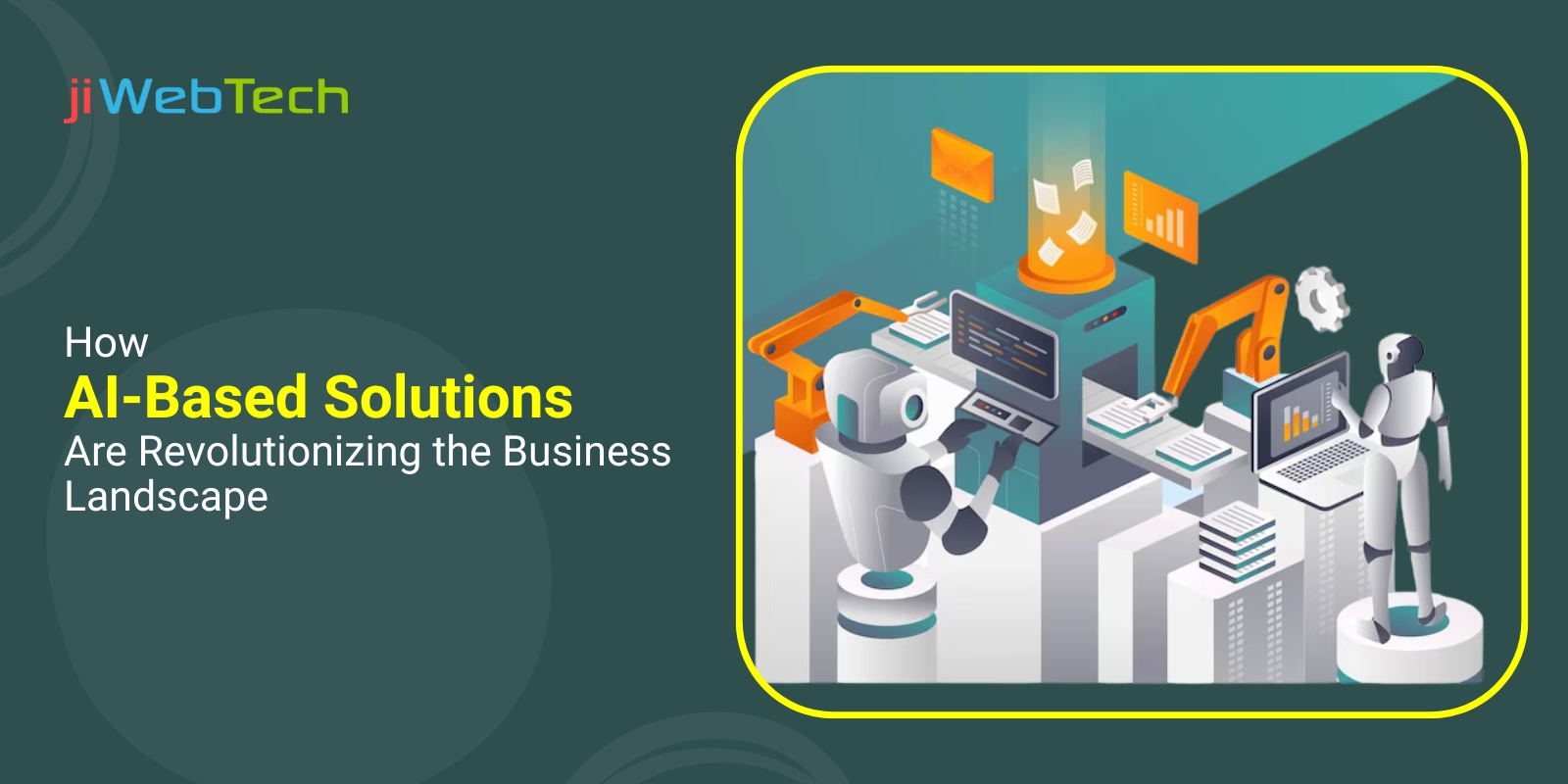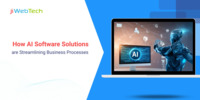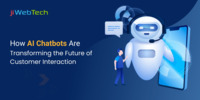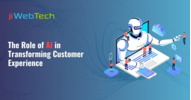- Apr 30, 2025
- Generative Ai
- 1777
Share this post on:

Today, many businesses are using something called Artificial Intelligence, or AI. AI means machines and computers that can think and learn like people. This technology is helping businesses do their work better and faster. In this blog, we will talk about how AI is changing businesses in simple words so everyone can understand.
What is AI?
AI is a smart computer system that can do tasks that usually need human thinking. For example, AI can learn from data, make decisions, and even talk to people. Businesses use AI to help with many jobs, like answering customer questions, checking data, or making plans.
AI is important because it helps businesses save time and money. It also helps companies give better service to their customers and stay ahead in a busy world.
How AI is Helping Businesses
Here is how AI is helping businesses grow:
1. Automation of Routine Tasks: AI is changing business by doing uninteresting and repeated tasks automatically. Jobs like entering data, managing bills, planning schedules, and replying to customer questions can now be completed by AI. This lowers errors and offers people greater time to do innovative and important work. For example, AI chatbots help clients all day and night. They quickly answer easy questions and pass harder ones to real people. This makes clients happier and helps teams work less hard.
2. Data-Driven Decision Making:AI is excellent at quickly and accurately looking through large amounts of data. It can spot patterns and developments that people might miss. This enables businesses to make smarter decisions. For example, AI can predict market changes, set proper prices, and manipulate inventory better. This leads to better plans and results. For example, banks use AI to take a look at marketplace records and guess how stocks will move. Stores use AI to create special deals for customers and make sure products are in the proper place at the right time.
3. Enhancing Customer Experience: AI allows businesses to give customers a very private and unique experience. By searching at what clients like and how they behave, AI can suggest products they might want, send marketing messages just for them, and even guess what they will want next. This makes clients feel understood and builds stronger relationships, so they keep coming back. For example, Amazon makes use of AI to propose merchandise based on what clients bought before. Hilton Hotels uses AI-powered robots to assist visitors by giving them statistics and offerings made only for them.
4. Intelligent Automation and Workflow Optimization: AI isn't only for easy tasks. It also can learn and enhance how work is done. In factories, AI checks machines to look when they might need repairs.This helps prevent breakdowns and saves money. Because of this, the work runs smoothly and without delays.
5. Strengthening Cybersecurity: AI is supporting a lot in keeping data and systems safe. It can find threats quicker and more accurately than traditional methods. AI watches network data all the time to note something unusual and act speedy to stop problems. For example, banks use AI to find fraud and protect important information.
6. Accelerating Innovation and Product Development: AI facilitates businesses create new things faster by doing research on its own, testing unique ideas, and thinking of new solutions. This makes it faster to make and release new products, so groups can live ahead of others. AI additionally helps with creative tasks like designing products and writing content.
Why AI is Good for Business
- Saves time and money by doing simple jobs automatically.
- Helps make smart decisions with data.
- Makes customers happy with personalized service.
- Helps create new products faster.
- Protects businesses from cyber threats.
- Lets workers focus on important and creative tasks.
The Cost of Implementing AI in Business
The cost to integrate AI solutions into a business varies widely depending on the project’s size, complexity, and industry needs. Here’s a simple breakdown of typical costs and factors involved:
Small-scale AI projects like chatbots or basic automation usually cost between $10,000 and $50,000. These cover software, cloud hosting, and integration with existing systems.
Mid-sized AI solutions such as predictive analytics or natural language processing applications often range from $100,000 to $500,000. These include data processing, model training, software development, and infrastructure expenses.
Large enterprise AI systems, including deep learning or autonomous systems, can cost $1 million to $10 million or more. These involve extensive R&D, high-performance computing, regulatory compliance, and ongoing maintenance.
Key Cost Factors
Data acquisition and management: Gathering, cleaning, and storing quality data can be expensive, especially in regulated industries.
Infrastructure: AI needs powerful hardware like GPUs or cloud services, with costs depending on whether you use cloud-based or on-premise solutions.
Talent: Hiring AI experts such as data scientists and engineers is costly, with salaries often ranging from $100K to $300K annually.
Model development: Training AI models requires significant computing resources, which can be costly.
Integration: AI must fit into existing business processes, often requiring software development and IT upgrades.
Maintenance: AI systems need continuous updates, retraining, and security monitoring, adding to long-term costs.
Conclusion
AI is changing the way businesses work. It helps companies do jobs faster, make better decisions, and keep customers happy. AI is not just for big companies, small businesses can use it too. As AI keeps getting better, it will help businesses grow and succeed in many new ways. If you want your business to do well, learning about AI and using it wisely is a great step. The future of business is smart, and AI is leading the way.
jiWebTech offers the best AI solutions that can help you enhance your business and increase your revenue. Want to learn how we can help you expand and win the market? Contact is today.
FAQs
1. How is AI transforming strategic decision-making in businesses?
AI-powered tools analyze vast amounts of data to uncover patterns and generate actionable insights, enabling leaders to make informed, data-driven decisions quickly and accurately. This helps businesses anticipate market trends, optimize strategies, and reduce risks.
2. In what ways does AI improve operational efficiency?
AI automates repetitive tasks such as data entry, inventory management, and customer service inquiries, increasing speed and accuracy while reducing human error. This allows employees to focus on strategic initiatives and innovation, streamlining operations and lowering costs.
3. How does AI enhance customer engagement and personalization?
AI algorithms analyze customer behavior and preferences to deliver personalized marketing, product recommendations, and customer support through chatbots and virtual assistants. This leads to improved customer satisfaction, loyalty, and higher conversion rates.
4. What role does AI play in product development and innovation?
By analyzing customer feedback and market data, AI helps companies identify unmet needs, generate new ideas, and accelerate product design and prototyping. This speeds up time-to-market and enables businesses to stay competitive through continuous innovation.









